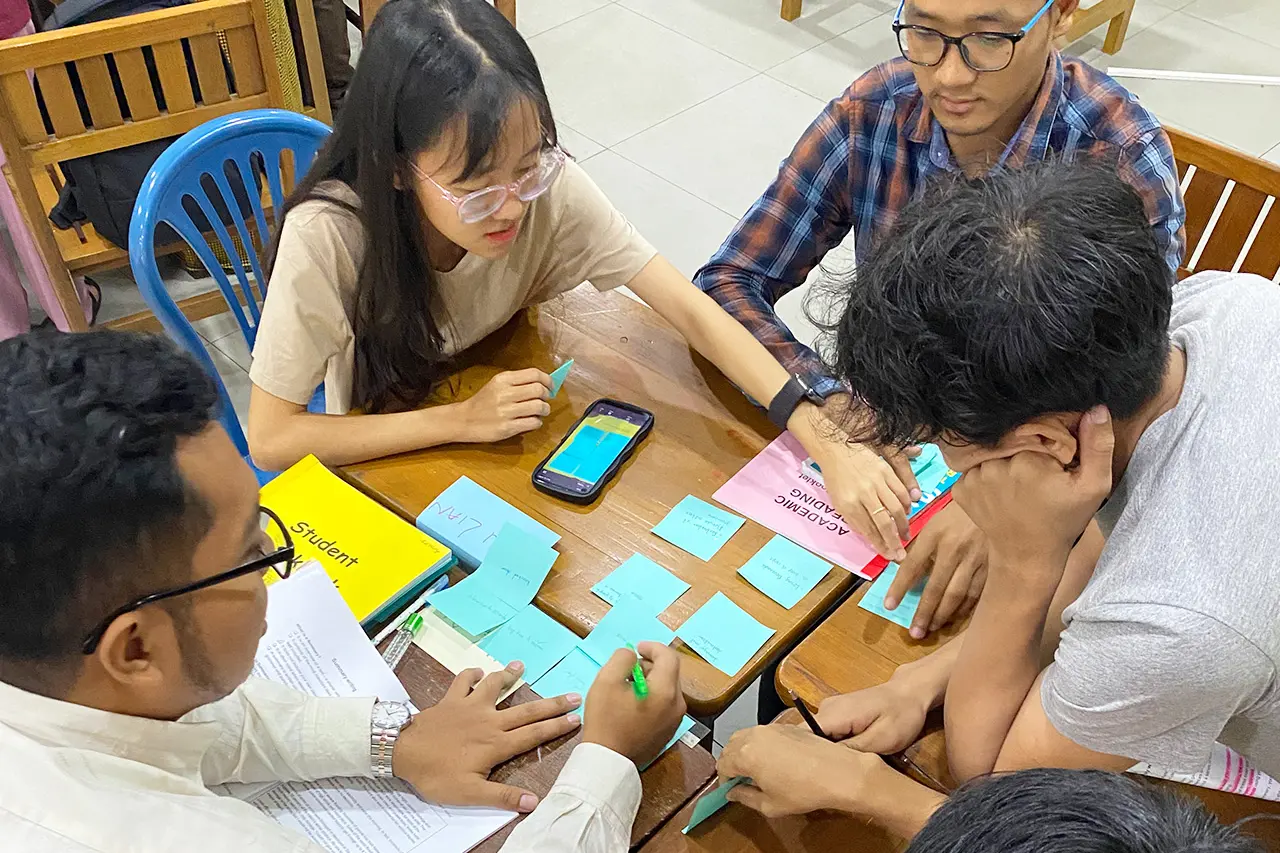When typhoon Haiyan destroyed a large city in the Philippines in 2013, a five-year-old girl asked her parents why God had allowed the storm to happen. We could ask the same of the recent earthquake in Indonesia, or any one of the many horrific and traumatic disasters across Asia-Pacific.
“Thankfully, her question and her pain have a place in the presence of God,” said Rico Villanueva, a Christian leader and Langham Scholar who teaches at one of LeaDev-Langham’s Partner Schools, Asia Graduate School of Theology (AGST) in Quezon City (Philippines).
Rico has authored a contextual commentary on the book of Lamentations, and also edited contributions to a broader commentary series.
Intimacy with God brings hope
Rico explains the importance and relevance of the book of Lamentations for those who are suffering and live in ‘hard places’across Asia-Pacific:
“The book of Lamentations is a rich resource in times of disaster. . . grieving is important in the process of healing. The absence of grieving hampers the process of restoration. Long before psychologists emphasized this, the book of Lamentations already modelled it for us.”
Rico notes the tendency of some to lament and cry, yet not cry out to God, or of others to view lament as a sign of weak faith. Rico shares that, “Lament is a sign of bold faith for it is able to confront the difficult questions in the presence of the Lord . . . People’s determination to keep on pursuing God even amidst all their pain and suffering is surely a sign of hope . . . Lament is a manifestation of one’s intimacy with God.”
Edgar Ebojo, another Langham Scholar and translator from the Philippines puts it this way:
“Because the Word of God is now available in their own language, it gives them an identity, that God speaks their language. And if God can speak their language, God can understand them – God can understand their suffering and their challenges… and everything they’re going through because God speaks their language. With this, there is Hope.”
Biblical Answers from an Asian Perspective
Contextual commentaries and resources are having a lasting and crucial impact on the Christian church across Asia. For the people of Asia – where natural disasters, grinding poverty and civil unrest are daily realities – a commentary written by and for Asians helps readers understand and apply God’s Word in their context and culture.
Rico says that the commentaries are crucial because the church is growing quickly in many parts of Asia yet is lacking biblical resources.
“Up until recently, comparatively little has been produced in terms of authentic Asian theological thinking that addresses directly and powerfully the big questions posed by culture and context in Asia.”
Now that is changing. Contextual Bible commentaries equip scholars, pastors and Christian leaders to learn from and teach God’s Word in ways relevant to their setting. Along with understanding the text better, cultural issues are addressed from a biblical perspective. In Asia-Pacific, most leaders have little or no theological training and few if any Bible study books, but they do have a Bible. The commentaries give them a tool for understanding and preaching the Bible, bringing Hope to their communities living in poverty and under pressure.
The people of Living Streams Christian Church just outside of Manila, Philippines, know what suffering is. Some are under the weight of poverty. Some are struggling with marital issues. And all are living on an island chain in the direct path of some of the most devastating typhoons in the last decade alone.
Their pastor, Ranilo (pictured here), is using a commentary on the book of Psalms written by Rico, to help his congregation respond to local issues, including how to lament. Ranilo says,
“This book is essential. From this book, I learned to preach. Not only that, I use it in a small group Bible study. . . When we talk about this commentary, many people come to the Lord and accept the Lord as the Savior of their life.”
Rico explains, “For many years it’s been the writings coming [to believers in the Philippines] mostly from the West . . . but now that there are Christians in Asia, for instance, and the church has been growing, there’s really a need for us to write theology, contextual biblical interpretation, from our own respective countries.
The Philippines is not the only place where contextual commentaries are bringing hope to Christians in hard places.
Our research from Africa shows for every commentary sent to a leader, a minimum of 10 – 12 other leaders use it, and 50 – 100 new believers benefit from the preaching of each of those leaders. Multiply this by more than 100,000 volumes already distributed and millions of lives are impacted. And now the same is happening across Asia-Pacific.
These books do not collect dust on a shelf somewhere, but are used daily by Christian leaders desperate to understand God’s Word in their context and then pastor their churches and communities effectively.
From New Zealand, your generosity makes it possible for leaders like Edgar and Rico to write contextual resources and books, and with these bring hope to thousands of local leaders like Ranilo and those in their congregation and community.
